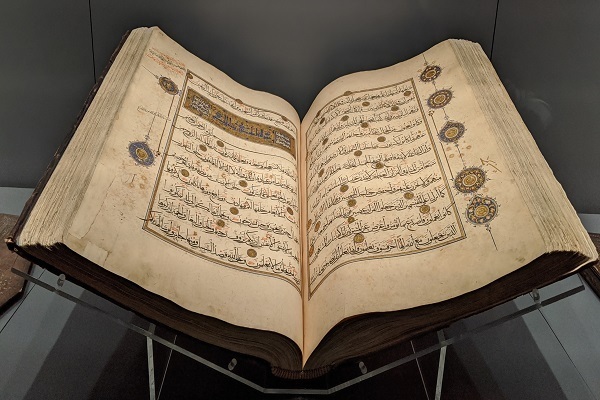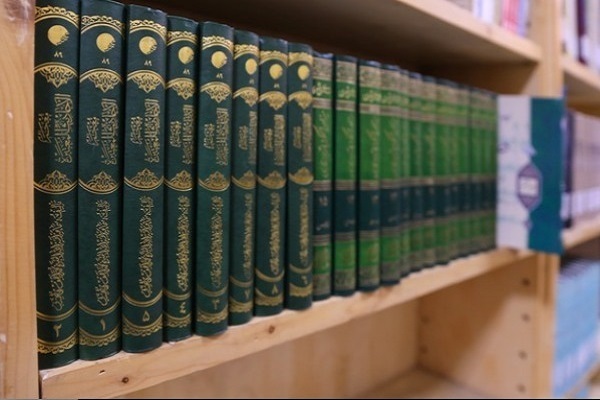Al-Azhar Scholar Urges Translating Major Quranic Studies Works into Western Languages

These significant works can influence the Western perspective on Quranic studies and address the questions and issues raised in this area, Osama Nabil, a French language professor at the university’s Faculty of Languages, said.
He explained about the state of translation of contemporary Arabic studies in the West and the reason for the delay in the translation of these books in Western countries.
“In the West, many books are published regularly in the field of Islamic studies, some of which are worth reading and translating, but others reflect negative views towards the religion of Islam and it is necessary to answer the doubts raised by such works.
“I, for one, select books that serve Islamic thought and translate them into Arabic. But individual efforts are not enough to translate the huge number of these books that are published every year.”
He added, “We are short on translating books published in the West in the field of Islamic studies. The reason for this shortfall is the lack of a clear translation schedule for books that will be published in the future in the West, especially in France, as well as the lack of funds from Arab publishers that are dedicated to this framework.”
Nabil said Western Orientalists have attempted to present Islam through the historical-critical theory, which views the Quran as a human-made text, in order to reach a conclusion that would satisfy secular thought—that religion is incompatible with the progress of the ages.
“This idea has been rejected by the majority of religious scholars, because what is built on falsehood is itself false. How could a religion like Islam, which has played a significant role in building human civilization over long periods, be subject to a theory with such a limited perspective? However, despite this clear rejection by most religious scholars, a small number of intellectuals influenced by Western thought have called for changes to the fixed principles of religion—such as inheritance and marriage—in the name of reform and gender equality. We do not endorse this thinking, as it clearly violates the fundamental and immutable principles of the religion.”
The scholar said that in any case, “I see a positive shift in Western thought in the new orientalist’s view of Islam over the last 10 years, and I hope that Muslim scholars, especially Arab scholars, will respond to this shift and engage in study, debate and discussion, using the Quranic approach, which is based on the best form of reasoning. Because it can have a positive impact on Muslim-non-Muslim relations in Western societies on the one hand, and on the intellectual dialogue between East and West, as well as Eastern thinkers, on the other.”
Read More:
He spoke about the efforts made to translate the Quran and books on Quranic sciences from Arabic into other languages, saying there are translations of the main books in the field of Quranic sciences and jurisprudence, but these are translations of old books that were very significant in their time and even if they are important as references in other times, we need a new jurisprudence translation that is in line with the developments of the modern era and the problems of Muslims in the West.”
Nabil added, “This reformist approach is consistent with the Islamic concept that Islam is valid for all times and places. In addition, we need to translate some of the most important Arabic works on the subject of Quran, and Quranic studies in particular, and their approaches. Because these important works can influence the Western view of Quranic studies and can answer questions and issues raised in this field.”
He emphasized the need for Western societies to translate books on Quranic science, saying, “Due to the changes in intentions that have occurred in Western societies and young people prefer social media over books in this era, books in their old form are no longer influential enough in modern society, so there is an urgent need to provide religious content in a style compatible with the new understanding and knowledge.”

The Al-Azhar University professor also talked about the efforts of the religious institutions of the Islamic world such as Al-Azhar to publish translations of the Quran and Quranic sciences that can be used as a reference. “As far as I know, Al-Azhar University makes many efforts to spread the translation of the Quranic concepts and tries to overcome the difficulties and problems that are in the way of Quran translators. These difficulties arise because of the difficulty of translating certain Quranic words into foreign languages, given the richness of the Arabic language and the miraculous nature of the Quran.”
Read More:
He further referred to religious reforms and said the aim of such reforms is not to weaken the established principles that the Islamic Ummah has agreed on based on the Quran and the Sunnah of the Prophet. “It is about changing the lives and attitudes of people, and renewing the religious discourse and the way it is presented to the public so that people don’t fall prey to extremist and bigoted ideas. So, from my point of view, reform means the renewal of thought, not the renewal of religion.”
4279313



